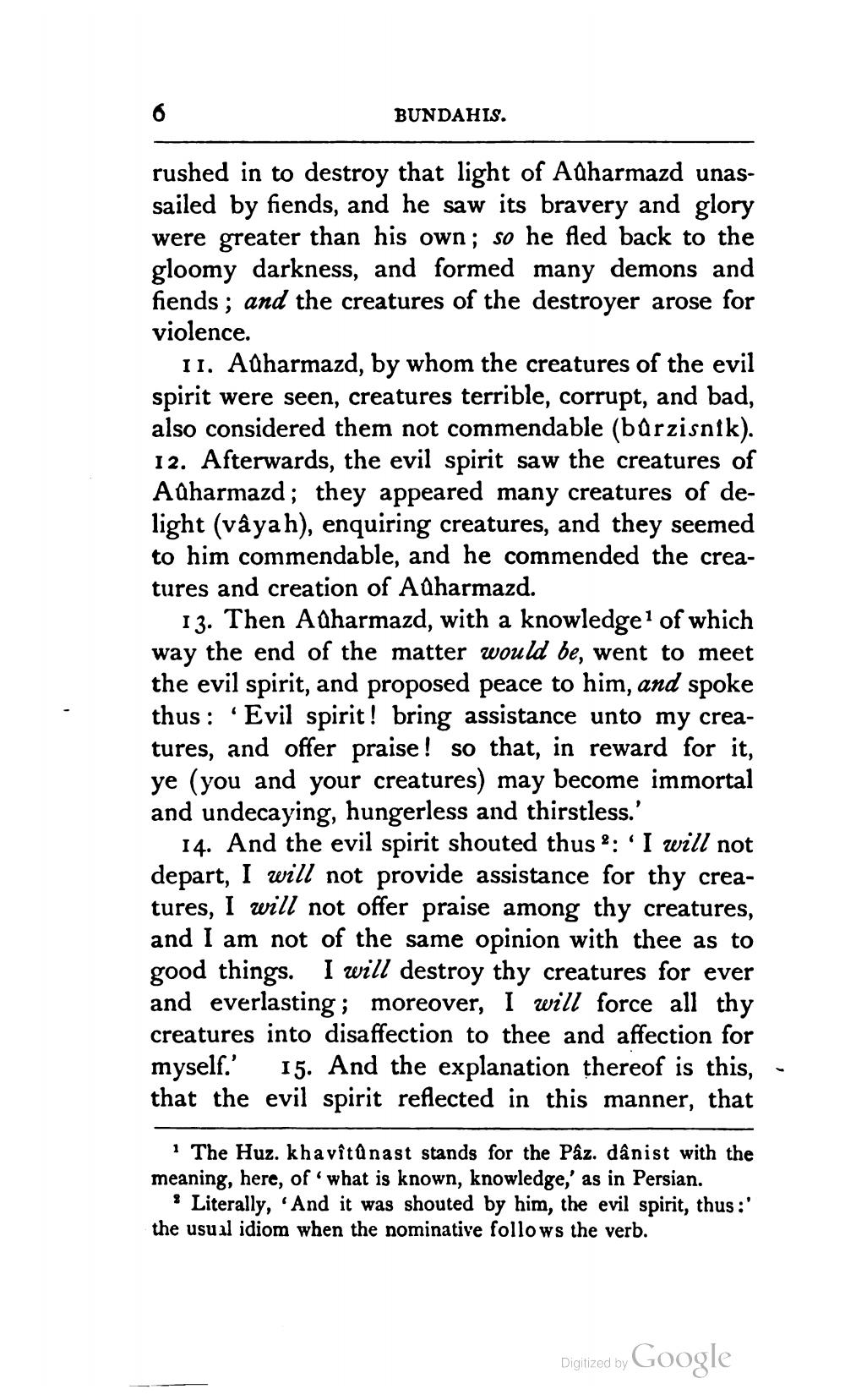________________
BUNDAHIS.
rushed in to destroy that light of Adharmazd unassailed by fiends, and he saw its bravery and glory were greater than his own; so he fled back to the gloomy darkness, and formed many demons and fiends; and the creatures of the destroyer arose for violence.
11. Adharmazd, by whom the creatures of the evil spirit were seen, creatures terrible, corrupt, and bad, also considered them not commendable (bârzisnik). 12. Afterwards, the evil spirit saw the creatures of Adharmazd; they appeared many creatures of delight (vâyah), enquiring creatures, and they seemed to him commendable, and he commended the creatures and creation of Adharmazd.
13. Then Adharmazd, with a knowledge of which way the end of the matter would be, went to meet the evil spirit, and proposed peace to him, and spoke thus : 'Evil spirit! bring assistance unto my creatures, and offer praise! so that, in reward for it, ye (you and your creatures) may become immortal and undecaying, hungerless and thirstless.'
14. And the evil spirit shouted thus 2: 'I will not depart, I will not provide assistance for thy creatures, I will not offer praise among thy creatures, and I am not of the same opinion with thee as to good things. I will destroy thy creatures for ever and everlasting ; moreover, I will force all thy creatures into disaffection to thee and affection for myself. 15. And the explanation thereof is this, - that the evil spirit reflected in this manner, that
1 The Huz. khavîtûnast stands for the Paz. dânist with the meaning, here, of what is known, knowledge,' as in Persian.
* Literally, 'And it was shouted by him, the evil spirit, thus :' the usual idiom when the nominative follows the verb.
Digitized by
Digitized by Google




